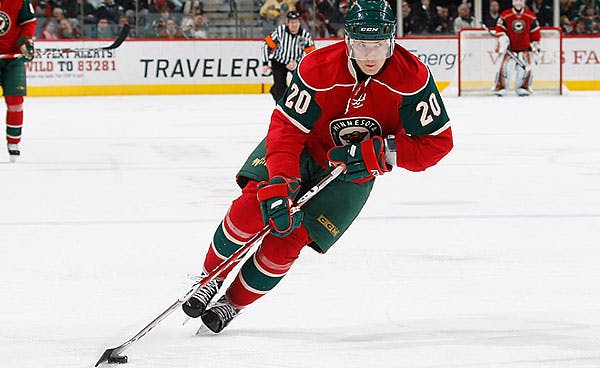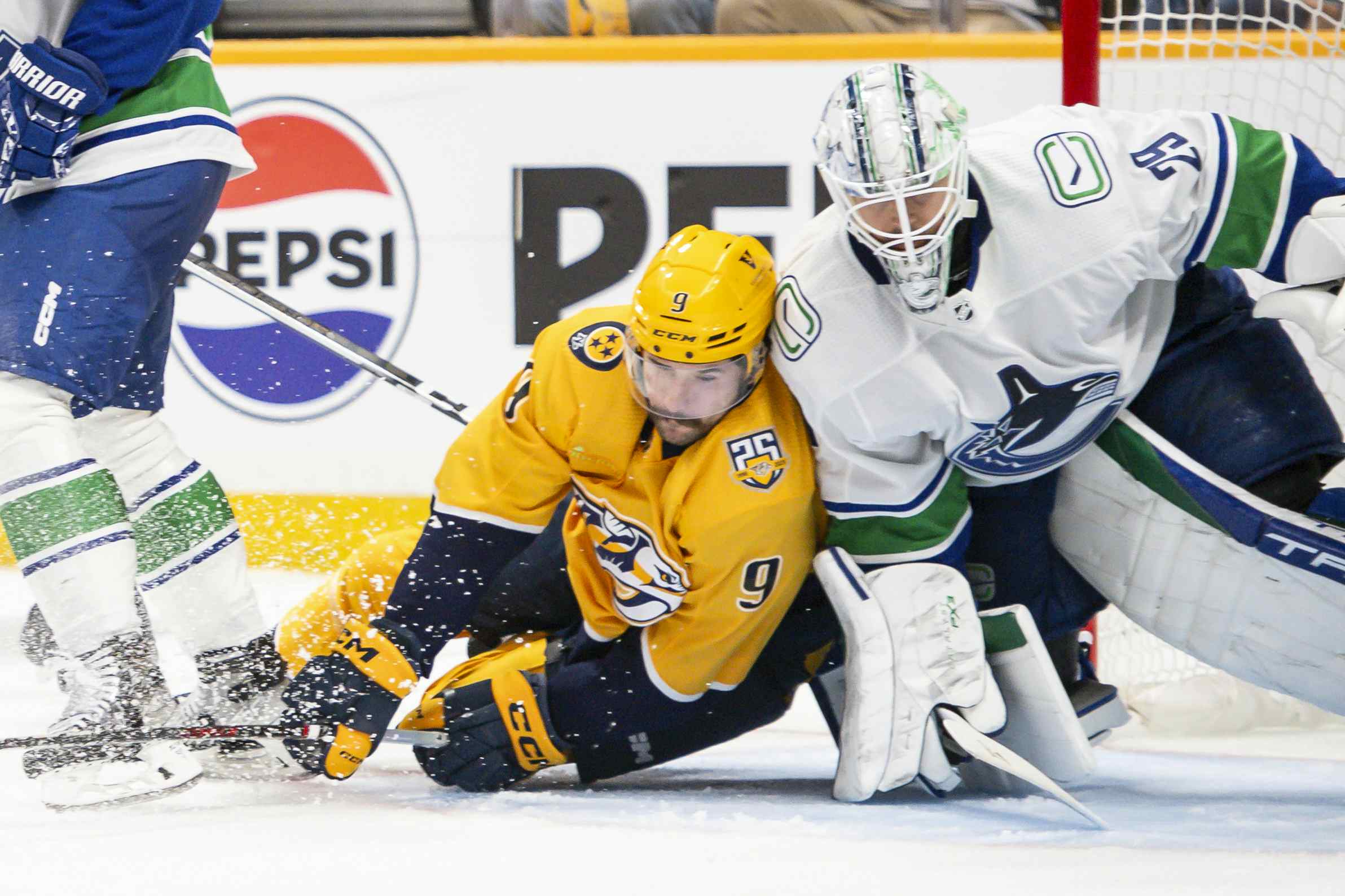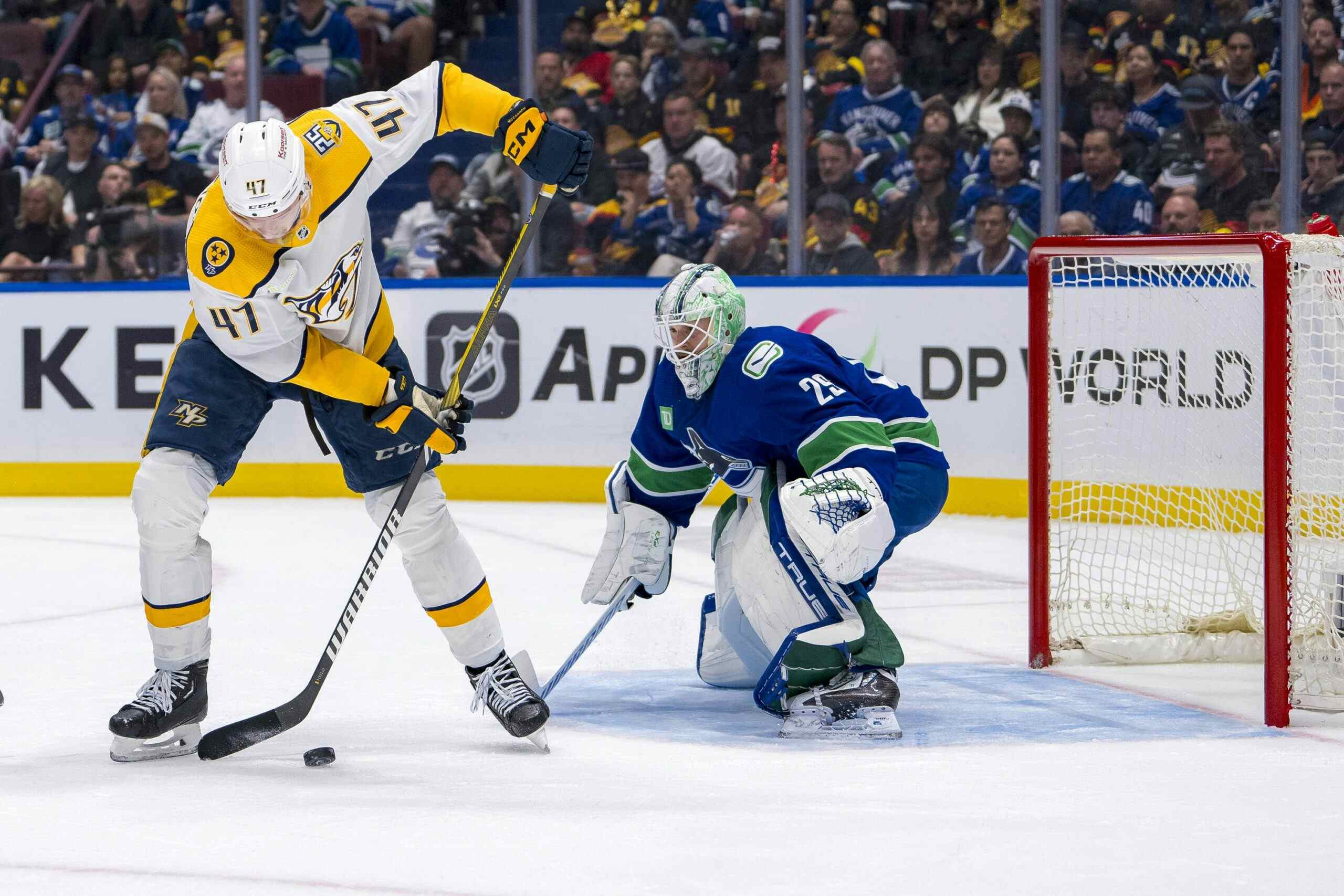The Wonders of CBA Rule 13.23 (or “Antti Miettinen has a Sad”)

The following is a guest post from our senior CBA correspondent Beantown Canuck. Beantown Canuck is a Nucksmisconduct regular, and a lawyerly type who resides in New York. He used to live in Boston but he now denies the existence of such a place. Beantown Canuck loves to look into and analyze the CBA, and may, or may not, derive a quasi-sexual satisfaction from such an activity that he calls "a lawyerboner." Here’s his take on Rule 13.23 of the current NHL/NHLPA CBA which, is the rule that requires players like Antti Miettinen to pass through waivers upon being signed, if they were previously under contract with a team overseas in the same season.
This is a Guest post from Beantown Canuck.
Alright Canucks Army, since I know you all loved my article on the ramifications of falling under the cap floor, I’m back to serve you some more hot, steamy NHL Collective Bargaining Agreement analysis. Today let’s talk about everyone’s favourite rule: Rule 13.23. What is Rule 13.23 you ask? Well you wouldn’t be asking if you were Antti Miettinen, or Evegni Nabokov, or Kyle Wellwood (in the case of Wellwood, for reasons beyond the fact that it’s hard to ask questions with a hoagie in your mouth). Rule 13.23 is the reason Antti had to forego the bikini’d beaches of Tampa for the cruel winters of Winnipeg. It is the reason why Evgeni couldn’t help Detroit overcome their torturous three season Stanley Cup drought and instead had to throw a hissy before eventually joining the Islanders. And it is the reason Kyle somehow missed out on St. Louis and had to instead join those “unafraid of losing” dynamos in San Jose.
This is Rule 13.23:
In the event a professional or former professional Player plays in a league outside North America after the start of the NHL Regular Season, other than on Loan from his Club, he may thereafter play in the NHL during that Playing Season (including Playoffs) only if he has first either cleared or been obtained via Waivers. For the balance of the Playing Season, any such Player who has been obtained via Waivers may be Traded or Loaned only after again clearing Waivers or through Waiver claim.
Basically, Rule 13.23 requires that any player who plays in a European professional league during an NHL season must pass through waivers before being allowed to play in the NHL during that season. As a result of this rule, in the case of Miettinen, Nabokov and Wellwood (who all left the KHL midseason), each was picked off waivers. But from the perspective of the interests of the NHL and the NHLPA, the two parties to the CBA, what’s the point of this rule?
Without question this rule is adverse to the goals of the NHLPA, whose purpose is to advocate for the interests of its members. Rule 13.23 adds a powerful element of risk to any team wishing to sign this category of players, inherently making teams less likely to do so. Furthermore, Rule 13.23 denies the player the element of control over where they play. This category of players basically only get to decide whether or not they are willing to sign a particular NHL contract, and then they leave it to Russian Roulette to determine for which team. Without this rule, players who begin a season in a European league and leave such league midseason would simply return to the free agency status they would have had prior to the season, with all the control that goes with it. The NHLPA is always in pursuit of increasing free agency rights for its members, and surely it should oppose this rule.
I also thing this rule is adverse to the interests of the NHL, whose purpose is to aggregate the interests of the owners/management of the 30 NHL clubs, whose individual goals are some unholy combination of “winning games” and “making money”. Rule 13.23 further ties the hands of league GMs who wish to shakeup their squads midseason. The addition of the salary cap under the current CBA makes midseason roster change difficult because you have to strike a balance between imposed financial limitations and hockey decisions on two separate teams to work something out. It no longer just takes two to tango—it now takes two plus both of their accountants. But for teams that have saved cap space or that have developed a sudden need for another warm body because of injuries (which can create unexpected LTIR cap space midseason), having the potential to bring in NHL caliber players currently outside the system can be a valuable alternative course to take. This rule effectively makes it no option at all, or at least no better than a crapshoot. Teams won’t bother trying to sign these players except as a desperation move, because as experience has shown, in all likelihood you’ll just be doing one of your 29 competitors a favour.
Perhaps I’m overlooking something. Perhaps there are some teams that prefer a system that makes it hard for these players to return to the league—maybe some teams (Islanders? Jets? ) think that they would have trouble signing players in such a fashion, so at least the waiver requirement gives them the same chance of picking up these players as any other team. Or perhaps less wealthy teams who wouldn’t be willing to add additional players to their payroll want this rule to partially level the playing field by deterring other teams from doing so as well. But considering that few players would ever be available through this route, and considering how for the most part players in this category only went to Europe in the first place because no team wanted to sign them for much money, instituting this rule for these purposes seems excessive to me.
I reached out to other hockey aficionados to see what they think the rule is for. In conversations over the interwebs, James Mirtle of the Globe and Mail initially suggested to me that maybe this rule is to appease the concerns of the European leagues. If correct, this seemed to me to be a redundant and overreaching reason to impose the rule. The NHL has in place transfer agreements with all of the major European hockey leagues other than the KHL, under which they agree, amongst other things, that no NHL team will sign a player under professional contract with any of those leagues. So the European leagues (other than the KHL) didn’t need further protection under the CBA, and if the KHL refuses to play nice with the NHL, why should the NHL grant them any favours?
Along a similar vein, Thom Drance of, well, here, suggested to me that maybe the NHL wanted this rule to deter players from cashing in over in Europe for the beginning of the season while awaiting a better offer to return midseason to the NHL. Again, this is a redundant concern for most leagues because of the transfer agreements. With respect to the KHL’s exclusion from the transfer agreement regime, the NHL could have created a simpler rule stating that no player may breach a contract with another professional league if they’ve played in that league during an NHL season in order to come play in the NHL during that same NHL season. That would have still left open the possibility for the NHL to steal away KHL players (i.e. Malkin) in the offseason while closing the door on players starting seasons in the KHL with the intention of breaching contract and running back to the NHL when a sweeter offer comes in. And for the last two seasons even this possibility has become a non-issue, because after a few years of mutual poaching between leagues (e.g. Radulov went the other way), last season and this season the KHL and NHL have entered into a “memorandum of understanding” under which they’ve agreed to cease and desist such practices. So as it stands now, the NHL treats KHL players the same as players in any other major European league—they have to be released from their existing contract in order to try and come back to the NHL. Antti, Evgeni and Kyle all were granted release from contracts to leave their KHL teams for various reasons. They were otherwise powerless to just up and jump ship and seek a better offer in the NHL.
2Mirtle later suggested that perhaps this rule is in place to prevent teams from manipulating the cap. But I’m not sure how teams could manipulate the cap by signing players who played in European leagues earlier in a season. And I really don’t understand why, if there is some sort of cap manipulation involved, such manipulation wouldn’t also be the case for signing free agents who don’t play anywhere until they receive a midseason deal to their liking (such players are not beholden to a waiver requirements). If someone can explain to me a good argument as to how this rule curbs cap manipulation I’d like to hear it.
The long and short of it is I don’t get this rule. I want these players to be able to come back and play in the NHL, and I want this to be a legitimate option available for teams to pursue. I hope when the next juicy, sexy, exciting CBA is agreed to (which hopefully happens this offseason, fingers crossed), Rule 13.23 will be dead and gone.
For those of you who want to join the cool kids and start analyzing the NHL CBA for yourselves, you can find a copy of it here. Have fun!
Beantown Canucks is a strident lawyerly type. Follow him on twitter here.
Recent articles from Thomas Drance





